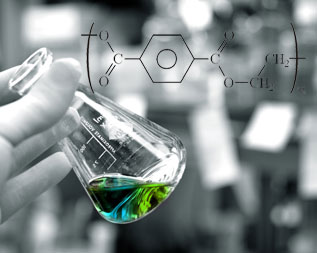ENSO Plastics - Test Results
ENSO Plastics sets the standard for educating and informing the public about biodegradable plastics. As an environmentally focused business, we feel transparency of information regarding the technology behind ENSO plastics is critical; and as such, ENSO Plastics is the first company to provide testing data to the general public. We feel that all organizations and businesses making biodegradable claims should do the same. We believe it is imperative that the public be informed and educated on the value biodegradable bottles can have in our environment and how to best utilize them to making a difference. We also believe that all plastics claiming biodegradable, compostable or degradable should be backed up by third party testing using test methods from internationally recognized standards boards. We do not feel that industry specific certification organizations are appropriate for validating such standards. We encourage consumers, organizations, and business alike to become knowledgeable about the products they are purchasing and to ask the tough questions to companies making such biodegradable claims.
ENSO Plastics strongly encourages the use of fair and honest environmental marketing claims and for adherence to the FTC Environmental Marketing Guidelines. Some believe a product being biodegradable or compostable represents the end of the products life, but we believe that it is important to analyze the lifecycle of the biodegradable product and consider all factors including: the source for the raw material, the use of the product and methods for extending that use, the customary disposal of the product and does the infrastructure exist to get the product properly disposed, and what are the value added propositions of the product after disposal.
We encourage businesses researching other biodegradable technologies such as PLA and oxo-degradables to request the testing data used to support their biodegradable claims and have that data reviewed by unbiased scientists. There are a number of organizations and businesses promoting biodegradable claims that do not have the data or refuse to provide the data supporting the biodegradable, compostable or degradable claims. Non-profit industry specific certification organizations should provide testing data for those products they certify.
 RECYCLABILITY
RECYCLABILITY
- Haze and Transmission via ASTM D 1003B
- Intrinsic Viscosity via ASTM D 4603
- Acetaldehyde via ASTM F 2013
- Fluorescence Visual
- Visual Black Specks and Gels
Currently, there are no recognized standard certification programs for recyclability. ENSO Plastics has performed various ASTM test methods on our bottles using 3rd party testing laboratories to verify the physical properties remain the same for recycled ENSO bottles, as compared to standard PET bottles. These test results reveal that the physical properties of ENSO bottles verse that found with standard PET bottles remain the same, with little to no distinguishing differences.
In addition, we believe it is important to work with recyclers and provide them the opportunity to handle and test ENSO bottles in their own facilities. Thus, we have provided a number of independent recyclers with samples of ENSO bottles. The ENSO bottle samples were subjected to these recyclers various testing methods, and standard processing procedures to see if the "real world" application of our product would reveal any inconsistent data. All reports from recyclers have indicated that there is no change to the PET physical characteristics with recyclate made from ENSO bottles.
ENSO Plastics continues to work with recyclers as well as industry organizations, to support environmentally sound solutions benefiting the recycling industry as a whole.
 BIODEGRADABILITY
BIODEGRADABILITY
- ASTM D 5511 Standard Test Method for Determining Anaerobic Biodegradation of Plastic Materials Under High-Solids Anaerobic Digestion Conditions
- ASTM D5526 Standard Test Method for Determining Anaerobic Biodegradation of Plastic Materials Under Accelerated Landfill Conditions
Currently, the customary disposal method of plastic bottles is either to recycle, or discard into a landfill. On average in the United States, over 70% of plastic bottles end up in landfills. We believe the most applicable test methods would be for testing biodegradation in anaerobic (landfill) environments.
Independent 3rd party testing has shown up to 24.7% biodegradation within 160 days in optimized conditions. Actual rate of biodegradation will vary dependent upon environmental conditions and the biological activity of microorganisms surrounding the plastic.
- LABWORKS Mansfield, MA 02048
LabWorks is an ISTA certified and ISO compliant laboratory with over 30 years experience in package development and testing, LabWorks is recognized for quality and accurate testing performed to ISTA, ASTM, FDA and UL standards.
- Eden Research Laboratory Albuquerque, NM 87107
Eden Research laboratory, headed by microbiologist Thomas Poth, is a specialized independent testing facility focusing on determination of rate of biodegradation of manufactured products through ASTM testing methods.
- Northeast Laboratories, Inc Berlin, CT 06037
North East Laboratories holds licenses and certification from the FDA, USDA, EPA, NELAP, State of CT and NY. NE Labs is utilized and trusted by The US Fedaral Government and DOD. Their employees are members of AAPS, IFT, AOAC, AWWA, AIHA and IAMFES.

 ENSO ADDITIVE
ENSO ADDITIVE
- Complies with FDA Title 21 CFR 177.1350
- Complies with FDA Title 21 CFR 177.1520
- Complies with FDA Title 21 CFR 177.1630
- Complies with FDA Title 21 CFR 184
- Complies with California Prop 65
- Environmentally safe / Non-toxic per RAL GZ 251
- No hazardous substances under SARA 311/312
- No chemical reportable under SARA 313
- Not specifically listed by the EPA as hazardous waste (40 CFR Part 2610)
- All components comply with TSCA
All ENSO additive components are covered under FDA CFR title 21 Generally Recognized As Safe (GRAS). Migration (extended leaching) testing has also been performed on bottles with ENSO RESTORE additive validating no migration of chemicals.



